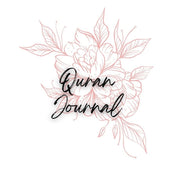Key Takeaways
- Divine Assurance: The Quran provides concrete promises that every hardship comes with relief, offering Muslims a scriptural foundation for resilience during life's most challenging moments.
- Accessible Comfort: These verses serve as practical spiritual tools that busy professionals and parents can integrate into daily routines, transforming moments of stress into opportunities for divine connection.
- Cultural Integration: Traditional Islamic teachings from the Quran offer timeless wisdom that resonates deeply with modern Southeast Asian Muslim families navigating contemporary challenges while preserving their faith heritage.
When Faith Meets Life's Challenges
Have you ever found yourself whispering "Ya Allah..." through tears during Singapore's humid nights, wondering how much more your heart can carry?
Whether it's the pressure of school pickup lines, work deadlines that stretch into family time, or the quiet guilt of not being the perfect Muslim mother you envisioned - these moments test our spiritual foundations. The Quran offers something profound in these instances: divine assurance that transcends cultural boundaries yet speaks directly to our Southeast Asian Muslim experience.
At AlHiqma, we've spent over seven years walking alongside Singapore's Muslim families. We've witnessed how returning to these sacred verses during personal struggles helps restore inner balance. As the founder and content creator behind AlHiqma's mission, I've seen countless mothers, fathers, and professionals find strength in words revealed over 1,400 years ago yet perfectly relevant to our modern lives.
Faith isn't a switch we flip on during Ramadan and forget about during exam season. It's a rhythm that sustains us through Singapore's fast-paced lifestyle while keeping us grounded in Islamic principles.
Verses That Anchor the Heart
The Divine Promise of Relief
"So truly where there is hardship, there is also ease." - Surah Ash-Sharh (94:6)
This verse carries a linguistic miracle that Arabic scholars emphasize. The word for hardship (al-'usr) appears with the definite article, making it specific and limited. But ease (yusran) appears without it, suggesting relief that is abundant and unlimited. Every struggle has boundaries, but Allah's mercy flows without limits.
"Indeed, with hardship comes ease." - Surah Ash-Sharh (94:5)
The repetition isn't coincidental. Islamic scholars note that Allah repeats this promise twice within the same chapter, creating emphasis that removes all doubt. When you're sitting in a hospital waiting room or facing an impossible deadline, remember this divine guarantee appears twice for your certainty.
Allah's Constant Mercy
"And do not kill yourselves. Indeed, Allah is ever Merciful to you." - Surah An-Nisa (4:29)
For moments when despair feels overwhelming, this verse whispers divine love. The Arabic word "Raheema" indicates mercy that is constant and unconditional. Whether you're struggling with perfectionism or feeling inadequate in your faith journey, Allah's mercy remains steadfast.
"Do not grieve. Indeed, Allah is with us." - Surah At-Tawbah (9:40)
These words were revealed during Prophet Muhammad's most vulnerable moment - hiding in a cave from those seeking to harm him. Even in physical danger and emotional distress, Allah's presence was unwavering. Your challenges, whether financial stress or family conflicts, cannot separate you from divine companionship.
Provisions Beyond Expectations
"And whoever fears Allah... He will make a way for him and provide from where he does not expect." - Surah At-Talaq (65:2-3)
This verse speaks to every parent worried about their children's education costs, every professional facing job uncertainty, and every student struggling with academic pressures. Taqwa (God-consciousness) unlocks provisions that extend beyond financial relief to include peace, unexpected solutions, and support from unlikely sources.
"And Allah is the best of planners." - Surah Aal-E-Imran (3:54)
When carefully laid plans crumble - career trajectories change, family dynamics shift, or health challenges emerge - this verse reminds us that apparent chaos may actually be divine orchestration. Sometimes rejection becomes protection, and closed doors lead to better opportunities.
Divine Wisdom in Our Capacity
"Indeed, Allah does not burden a soul beyond what it can bear." - Surah Al-Baqarah (2:286)
Whether facing parenting challenges, workplace burnout, or relationship difficulties, this verse confirms that your current struggle is within your capacity to handle. The word "burden" here encompasses emotional, physical, and spiritual challenges - all measured according to your unique strength with divine support.
"So be patient. Indeed, the promise of Allah is truth." - Surah Ar-Rum (30:60)
Patience (sabr) in Islam isn't passive waiting. It's active trust combined with continued effort. It means maintaining kindness when exhausted, showing up for family responsibilities during personal struggles, and persisting in faith when results aren't immediately visible.
Practical Applications for Daily Life
For Working Professionals
During your morning commute on the MRT, dedicate five minutes to reciting one strength-giving verse. Play a beautiful recitation while preparing your morning kopi, allowing the rhythm to center your heart before the day's demands begin. Keep a small notebook with these verses at your workplace for moments when stress peaks.
For Parents Managing Multiple Responsibilities
Transform bedtime routines into spiritual learning opportunities. Choose one verse weekly and explain it using simple examples your children understand - like how waiting for their birthday teaches the same patience (sabr) mentioned in the Quran. Create a family tradition where everyone shares how they practiced patience that day.
For Students and Lifelong Learners
Establish a study ritual that includes reading one comforting verse before major exams or presentations. Many Singapore students find that beginning their revision with these verses reduces anxiety and improves focus. Write your favorite verse in beautiful Arabic calligraphy and hang it in your study space as a visual reminder of divine support.
During Health Challenges or Anxiety
Listen to gentle recitations of these verses during medical treatments or sleepless nights. Healing encompasses both physical and spiritual dimensions. Create a playlist of these specific verses and play them during meditation or prayer time, allowing the words to wash over you like a spiritual balm.
Frequently Asked Questions
Q: Why does Surah Ash-Sharh repeat the promise of ease twice in such a short chapter?
A: Islamic scholars explain this repetition as divine emphasis for absolute certainty. Allah wants believers to feel completely confident that difficulty is temporary and relief is guaranteed. The structure of the entire chapter builds from identifying hardship to promising relief twice, then describing the relief in detail.
Q: How can I practice patience (sabr) when everything feels overwhelming?
A: Sabr in Islam is active, not passive. It means continuing to act with integrity, maintaining your prayers, and treating others kindly even when you're struggling internally. Start small - practice patience during traffic jams or while waiting in queues, then gradually apply this skill to larger challenges.
Q: What does it mean that Allah doesn't burden a soul beyond its capacity?
A: This verse assures us that our challenges are always within our ability to handle with Allah's help. It doesn't promise life will be easy, but it guarantees we're never given more than we can bear. The key phrase "with Allah's help" reminds us we don't face difficulties alone.
Q: Can reading these verses help with mental health struggles?
A: These verses provide profound spiritual comfort and can be part of a holistic approach to mental wellness. However, persistent depression or anxiety should also be addressed with qualified mental health professionals. Many Islamic counselors in Singapore integrate both spiritual guidance and clinical expertise.
Q: How can I make these verses a natural part of my daily routine?
A: Start by choosing one verse that resonates with your current situation. Write it on a sticky note and place it where you'll see it frequently. Gradually memorize it by reciting during routine activities like cooking or folding laundry. Over time, these micro-moments build significant spiritual strength.
About the Author
This article was written by Sheela M. Ahmed, founder and content creator at AlHiqma. With over seven years of experience serving Singapore's Muslim community, Sheela specializes in making traditional Islamic teachings accessible to modern Southeast Asian Muslim families. Her work focuses on bridging timeless spiritual wisdom with contemporary lifestyle needs.
Which of these verses speaks most deeply to your current situation? Share your reflections on our social media platforms and connect with fellow members of our community. Follow us for daily inspiration and join our supportive community where we encourage each other through both struggles and celebrations.












